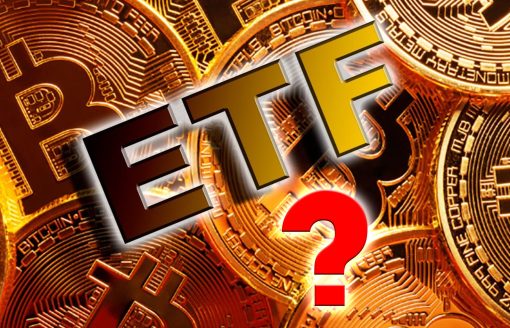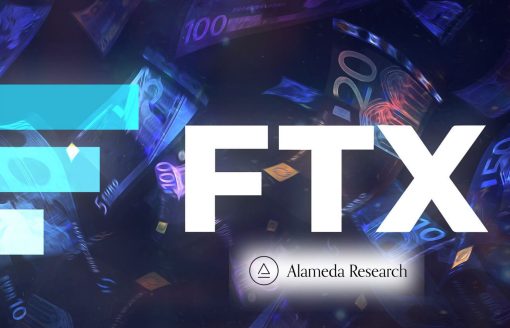The legalization, regulation, and adoption trends of cryptocurrencies in various nations are highlighted in a recent CoinGecko research that provides insight into the state of cryptocurrencies worldwide.
Stay in the know on crypto by frequently visiting Crypto News Today
The research offers fascinating insights into the legislative environment, the nations that have approved or prohibited the use of digital assets, and the general acceptance of these assets.
95% of European Countries Acknowledge Legitimacy
CoinGecko’s research shows that 119 nations and four British Overseas Territories have legalized cryptocurrencies, meaning that over half of all nations have adopted them.
Remarkably, rising and developing economies in Asia and Africa account for 64.7% of the nations that have legalized digital assets.
Europe stands out as a leader in legalization, since 39 of the 41 nations examined (95.1%) acknowledge its validity. But, Moldova’s position is still unknown, leaving North Macedonia as the sole nation in Europe where cryptocurrency is prohibited.
Advertisement
Follow GappyCoin PreSale on Twitter, and ReCap for information and more.
24 of the 31 countries in the Americas (77.4%) recognize cryptocurrency as lawful; Bolivia is the lone exception. A number of American nations, such as Haiti, Guatemala, Guyana, Nicaragua, Paraguay, and Uruguay, have not yet made their official positions on digital assets clear.
Fewer African nations have legalized cryptocurrencies; only 17 out of 44 (38.6%) acknowledge their validity. In the meantime, 35 of 45 Asian nations (77.7%) have welcomed these resources.
Regulating Cryptocurrencies Is Increasing
Only 62 (52.1%) of the 119 nations where cryptocurrencies are legal have complete rules in place, according to the research. Compared to 2018, when there were only 33 jurisdictions with regulations, this is a notable growth.
CoinGecko states that advanced economies make up half of the nations with established legislation, and emerging and developing economies make up the other half.
The research also points out that some nations have included cryptocurrency into pre-existing frameworks like tax laws and anti-money laundering legislation rather than establishing new ones.
Significant developed economies have put in place regulatory structures with success, including Germany, France, and Japan. But because of the many government agencies involved and the complexity of regulations, nations like Italy, the US, Canada, and the UK find it difficult to create thorough regulations.
Only two nations—El Salvador and the Central African Republic (CAR)—have authorized digital assets. Although El Salvador made history by allowing the use of Bitcoin as legal cash, CoinGecko observes that usage is still very low.
Twenty-five countries negotiate the regulatory gray area
Twenty-five nations are classified as “crypto-neutral,” meaning they do not provide a clear legal framework for the use of cryptocurrencies. While the majority of these nations have openly opposed cryptocurrencies or voiced serious worries and limits, Uruguay takes a cautiously hopeful stance, actively reviewing pilot projects in the field and putting forth legislative measures.
The use of digital tokens and transactions within national borders have been expressly outlawed in 22 nations. With the exception of North Macedonia (in Europe) and Bolivia (in America), most of these nations are found in Africa. According to the survey, some of these nations—China, Egypt, Nepal, and Morocco—show notable adoption rates in spite of the bans.
CryptoCaster™ steadfastly upholds its dedication to keeping our global audience well-informed about the ongoing adoption of blockchain technology, as well as the latest hurdles emerging from government-controlled fiat financial systems, banking conglomerates, and other major institutional entities. Our commitment extends to providing comprehensive updates and insights into how these developments affect the broader landscape of digital currencies, the potential regulatory impacts on blockchain innovations, and the evolving dynamics between traditional financial institutions and emerging cryptocurrency markets. By staying at the forefront of these critical issues, CryptoCaster™ aims to empower our audience with the knowledge needed to navigate the complex interplay of technology, regulation, and finance in the modern world. ![]()
We hope you appreciated this article. Before you move on, I was hoping you would consider taking the step of supporting CryptoCaster’s journalism.
From Elon Musk, Larry Fink(BlackRock) to Jamie Dimon(JP Morgan Chase) a number of billionaire owners have a powerful hold on so much of the hidden agendas’ which eludes the public concerning the paradigm shift juxtaposed by cryptocurrency and web3 emerging technologies. CryptoCaster is different. We have no billionaire owner or shareholders to consider. Our journalistic efforts are produced to serve the public interest in crypto development and institutional disruptions – not profit motives.
And we avoid the trap that befalls much U.S. and global media – the tendency, born of a desire to please all sides, to engage in false equivalence in the name of neutrality and retail consumer protection. While fairness and transparency dictates everything we do, we know there is a right and a wrong position in the fight against fiat global banking interest and monetary reconstruction precipitated by the emerging crypto ecology.
When we report on issues like the FTX, Binance and Ripple crisis, we’re not afraid to name who or what is uncovered. And as a crypto sentinel, we’re able to provide a fresh, outsider perspective on the global monetary disruption – one so often missing from the insular American and European media bubble.
Around the world, readers can access the CryptoCaster’s paywall-free journalism because of our unique reader-supported model. That’s because of people like you. Our readers keep us independent, beholden to no outside influence and accessible to everyone – whether they can afford to pay for news and information, or not.
We thankyou for the on-going support our readers have bestowed monetarily. If you have not considered supporting CryptoCaster, if you can, please consider supporting us just once from $1 or more of Bitcoin (satoshi) or Eth, and better yet, support us every month with a little more. Scroll further down this page to obtain CryptoCaster’s wallet addresses.
Thank you.
Kristin Steinbeck
Editor, CryptoCaster
Please Read Essential Disclaimer Information Here.
© 2024 Crypto Caster provides information. CryptoCaster.world does not provide investment advice. Do your research before taking a market position on the purchase of cryptocurrency and other asset classes. Past performance of any asset is not indicative of future results. All rights reserved.
Contribute to CryptoCaster℠ Via Metamask or favorite wallet. Send Coin/Token to Addresses Provided Below.
Thank you!
BTC – bc1qgdnd752esyl4jv6nhz3ypuzwa6wav9wuzaeg9g
ETH – 0x7D8D76E60bFF59c5295Aa1b39D651f6735D6413D
MATIC – 0x7D8D76E60bFF59c5295Aa1b39D651f6735D6413D
LITECOIN – ltc1qxsgp5fykl0007hnwgl93zr9vngwd2jxwlddvqt
CRYPTOCASTER HEATMAP







